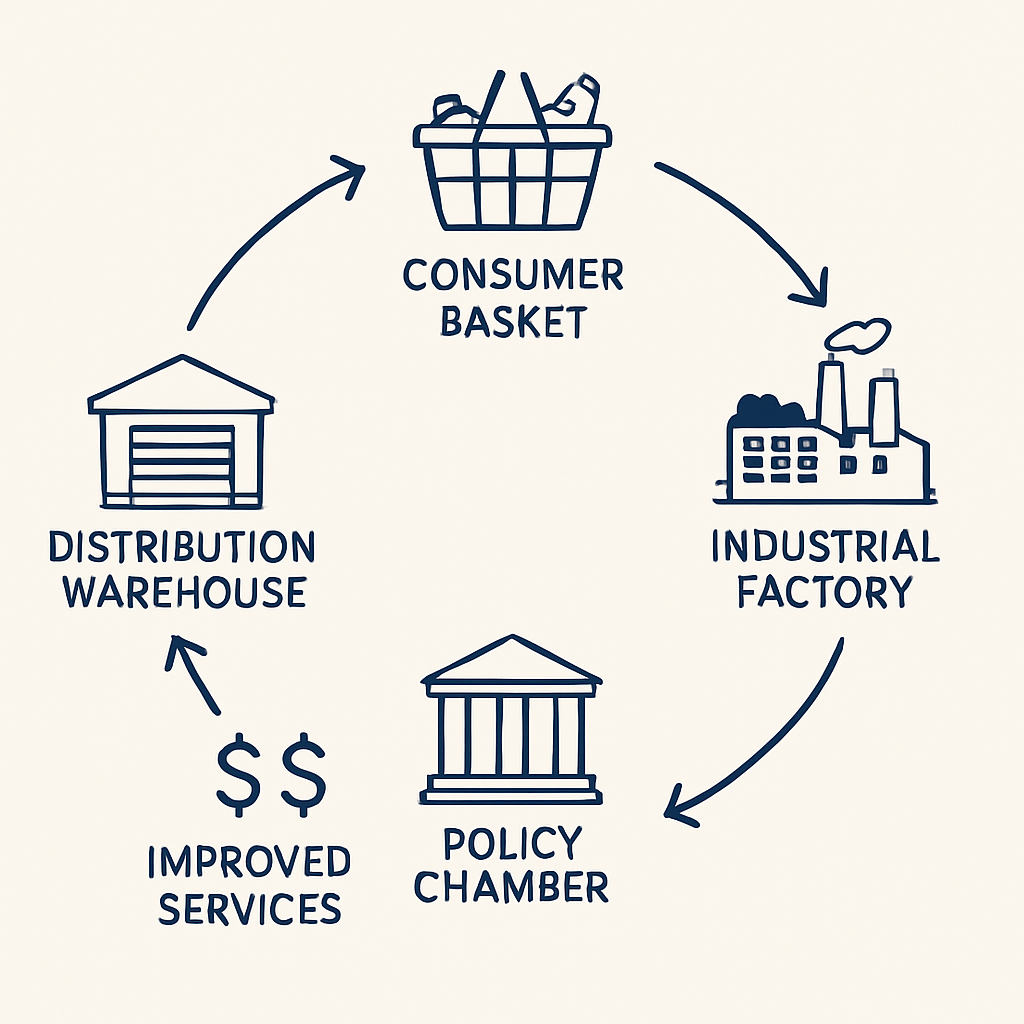Women as Economic Generals
Blueprints for the Next Economy
Women starting with the one pager for household swaps can start a new economy. That easy.
Blueprints for the Next Economy
If you want to watch an economy pivot, don’t stare at politicians—watch the women holding the receipts.
For centuries, public authority over production and policy was a men-only club.
Ancient Egypt crowned pharaohs like Hatshepsut, and Mesopotamian priestesses owned land and managed temples.
Then came a long patriarchal detour. As the cultures that produced the Hebrew Bible coalesced, lineage and priesthood were written almost entirely in male terms. Deborah’s brief judgeship survives in scripture precisely because it was exceptional.
When Christianity and later Islam spread, the pattern hardened. The great Near-Eastern civilizations had once tolerated or even celebrated female power; now the official channels belonged almost exclusively to men.
Back to Evolution after the pause
It took nearly three thousand years to claw back what ancient queens once held.
The U.S. finally ratified the 19th Amendment in 1920, giving women the vote, half a democracy at last.
Yet the keys to real economic agency came even slower:
until the Equal Credit Opportunity Act of 1974, most American women still needed a husband’s signature to secure a mortgage or a credit card, and many banks quietly kept that barrier alive well into the mid-1980s.
Fast-forward one generation:
Women now own nearly 40 percent of U.S. businesses, start companies at twice the rate of men, and hold record numbers of elected offices worldwide. They’re no longer asking for a seat at the table. They’re building new tables and writing the budgets.
The Quiet Lever That Outruns Legislation
Roughly 80 percent of consumer decisions are made or strongly influenced by women.
That’s not a demographic footnote; it’s a market-moving force.
When women specify hemp or bamboo in their carts, procurement lists, or municipal RFPs, they don’t just “shop green”, they dictate feedstock.
Tooling follows demand, financiers follow tooling, and factories re-tool long before any senator drafts a bill.
From Shopper to Owner to Lawmaker
Today’s woman isn’t just a buyer.
She’s the entrepreneur sourcing bio-based packaging for her own company.
She’s the investor pushing suppliers to prove carbon math.
She’s the council member who writes procurement standards that favor regenerative materials.
The power once denied has become a closed loop: consumer choice → enterprise creation → policy setting.
A Battle-Tested Observation
After three marriages and a lifetime of strong-minded women in my orbit, I can tell you: when women decide to change the rules, you can argue or you can take notes.
I keep a notebook.
The Call to Arms
This is the consumer flank of the bio-economy pincer described in Evolution Mine: The Industrial Evolution:
one wing builds the hemp-and-bamboo supply chain;
the other—led by women’s purchasing and policy power—starves petrochemicals of oxygen.
Your playbook:
Flip five categories you buy every month—paper goods, cleaning tools, kitchen storage, personal-care packaging, pantry staples—to hemp or bamboo.
Demand documentation: country of origin, material content, labor compliance. No docs, no deal.
Broadcast the swap: share vendor changes and price deltas with your PTA, salon, clinic, or city council.
Predictable, documented demand is the single fastest way to force new mills to open and financiers to back them.
That is how markets are re-engineered—not by speeches, but by purchase orders.
Protests change headlines. Purchases change factories.
Women have the leverage. The rest of us would be wise to keep up.
Download the Household Swap Sheet (PDF) to start your own five-category pivot and signal the next economy—on your terms, and nobody else’s.
Read the full story in the book.
Evolution Mine: The Industrial Evolution—the blueprint for breaking the petrochemical playbook and building a regenerative economy.
👉 Buy on Amazon





